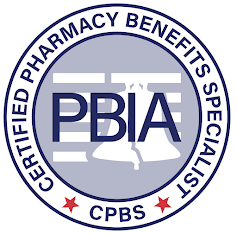Proposed Legislation Targets Pharmacy Benefit Managers, Calls for Pharmacy Divestiture and other notes from around the interweb:
- Proposed legislation would require pharmaceutical benefit managers to divest of pharmacies. The bill, sponsored by U.S. Senators Elizabeth Warren, a Democrat, and Josh Hawley, a Republican, will force companies owning health insurers or pharmacy benefit managers to divest their businesses operating pharmacies within three years. Representatives Diana Harshbarger, a Republican, and Jake Auchincloss, a Democrat, are also supporting the bill, which will be introduced in the Congress. PBMs negotiate prescription drug prices between insurers, pharmacies and drugmakers, and directly reimburse pharmacies for prescription drugs included under their agreed terms. They have previously come under scrutiny for their influence over prescription drug prices. “PBMs have manipulated the market to enrich themselves — hiking up drug costs, cheating employers, and driving small pharmacies out of business. My new bipartisan bill will untangle these conflicts of interest by reining in these middlemen,” said Senator Warren.
- Mark Cuban: Buying prescription drugs is ‘just like buying lettuce‘. Mark Cuban is making his Cost Plus Drug Co. online pharmacy and discount card program a test of the proposition that the U.S. prescription drug market is just another market. When employers use traditional pharmacy benefit managers, they often have a hard time getting basic information about claims, the rebates the PBMs have negotiated and where the rebate value is flowing, Cuban added. Cuban argued that the prescription drug market and other health care markets can work like the market for fruits and vegetables if the suppliers provide enough information. “If you want an efficient market, you have to have pricing available for everybody to evaluate,” Cuban said.
- Antitrust Class Actions Against CVS, Other Pharmacy Benefit Managers Are Piling Up. Plaintiffs, independent pharmacies, claimed the defendants “have vertically integrated” with health care giants such as insurance companies, health care providers, private drug labelers and others. As a result, the complaints say, pharmacy benefits managers use anticompetitive methods to suppress reimbursements for discount card payments, which allegedly causes stand-alone pharmacies to suffer and even go out of business. “Each of the PBM Defendants is a wholly owned subsidiary of a healthcare conglomerate that also owns mail-order, specialty, and/or retail pharmacies, large health insurance companies, and other players in the market for prescription dispensing services,” the Philadelphia Association of Retail Druggists argued.
- PBM Contracting and Administration: What Are the Rules of the Road for Self-Insured Employers? Recently, PBMs have faced growing scrutiny, especially for their role in drug pricing and lack of transparency. Less attention has been given to the misuse of drug formularies—the foundation of drug benefits, listing medications covered by health insurance. While some argue formularies’ purpose has remained consistent over 30 years, others disagree. Initially, a pharmacy and therapeutics committee within a PBM, health plan, or other organization developed drug formularies. Clinicians and other experts on the committee determined the drug’s safety, efficacy, and unique clinical aspects. If the drug met their standards, they placed it on the formulary.
